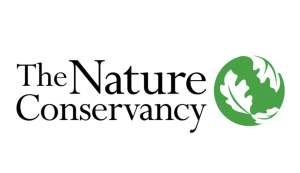The Nature Conservancy to receive $200 million from EPA’s Climate Pollution Reduction Grant Program
July 29, 2024TNC in South Carolina to receive $39 million to sequester carbon in bottomland forests.
The Nature Conservancy (TNC) announced that it will receive $200 million toward nature-based climate solutions, supporting significant reductions of carbon emissions across four states: South Carolina, Maryland, North Carolina and Virginia. Projects across the states will focus on improved forest management, peatland restoration and tidal wetland enhancement, which are three areas identified by TNC as having the highest potential greenhouse gas benefits. The projects collectively are expected to reduce greenhouse gas emissions by an estimated 28 million metric tons CO2e by 2050. The amount is equivalent to the emissions caused by more than 5.5 million homes’ electricity use for one year.
This grant is part of a historic $421 million award from the Environmental Protection Agency’s (EPA) Climate Pollution Reduction Grant (CPRG) Program, established as part of the Inflation Reduction Act in 2022. The award will fund both state-led and TNC-led projects. South Carolina, Maryland, North Carolina and Virginia and TNC programs within those states joined together to form the Atlantic Conservation Coalition to apply for the funding package. It now stands as the largest-ever on record for natural climate solutions.
“In TNC’s 55 years of conserving South Carolina, we’ve seen how our forests can shelter wildlife, protect against flooding, keep our drinking water clean and offer opportunities to get outside,” said Dale Threatt-Taylor, executive director for TNC in South Carolina. “With this investment, these incredible resources have the potential to do even more. The same natural features that make South Carolina a wonderful place to live also can store carbon and lessen climate impacts.”
Between January 2025 and January 2030, TNC in South Carolina will receive $39 million to improve the health and management of 18,000 acres of bottomland hardwood forest across the state’s coastal plain. While TNC has been active in forest floodplain projects for decades, this funding will accelerate the pace and scale of the work. TNC will collaborate with the South Carolina Office of Resilience (SCOR), natural resource agencies and non-profit partners to achieve the project goals.
Other Atlantic Conservation Coalition projects outside of South Carolina include salt marsh and peatland restoration, planting trees in cities and conserving farmland.
The Nature Conservancy is the leading conservation organization working around the world to conserve the lands and waters on which all life depends. The Conservancy and its more than 1 million members have protected nearly 120 million acres worldwide. Visit The Nature Conservancy on the Web at nature.org/sc.





















